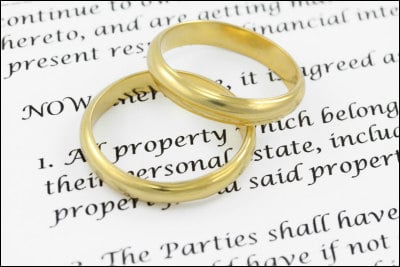 For years, Virginia circuit courts were split on the question of who gets the engagement ring after a breakup in Virginia. Some courts held that the engagement ring could not be recovered because such claims are barred under Virginia Code § 8.01-220. Known as the “heart balm” statute, that code section bars civil actions for breach of promise to marry (along with civil actions for alienation of affection, criminal conversation and seduction). However, other courts held that the engagement ring could be recovered because the party seeking to recover the ring is not seeking damages due to a broken promise to marry, but rather is asking for the return of a conditional gift, the condition being the marriage. Therefore, these courts held, when the engagement breaks off, the condition is not satisfied and thus the gift (the ring) should be returned.
For years, Virginia circuit courts were split on the question of who gets the engagement ring after a breakup in Virginia. Some courts held that the engagement ring could not be recovered because such claims are barred under Virginia Code § 8.01-220. Known as the “heart balm” statute, that code section bars civil actions for breach of promise to marry (along with civil actions for alienation of affection, criminal conversation and seduction). However, other courts held that the engagement ring could be recovered because the party seeking to recover the ring is not seeking damages due to a broken promise to marry, but rather is asking for the return of a conditional gift, the condition being the marriage. Therefore, these courts held, when the engagement breaks off, the condition is not satisfied and thus the gift (the ring) should be returned.
The Virginia Supreme Court resolved the circuit split in McGrath v. Dockendorf, Record No. 160262 (December 15, 2016). In this case, Mr. Dockendorf gave his fiancé Ms. McGrath a two-carat engagement ring worth approximately $26,000. The parties never married, and upon termination of their engagement Mr. Dockendorf asked Ms. McGrath to return the ring. She refused, and Mr. Dockendorf sued Ms. McGrath for return of the engagement ring. In the ensuing civil law suit, Ms. McGrath argued that Mr. Dockendorf’s claim was barred by Virginia’s heart balm statute.
The trial court ruled in Mr. Dockendorf’s favor, finding that his claim was not barred by Virginia Code § 8.01-220. The court further held that the gift of the ring from Mr. Dockendorf to Ms. McGrath was a conditional gift, that when their engagement broke off, the condition upon which the gift was made did not occur, and that Mr. Dockendorf could institute an action in detinue to recover the ring or its value.
On appeal, the Virginia Supreme Court affirmed the trial court’s ruling and distinguished between a claim in detinue and an action for breach of a promise to marry. The Supreme Court stated that “[b]reach of promise to marry suits were intended to broadly compensate a plaintiff for loss and humiliation of a broken engagement. In contrast, the object of a detinue action is to recover specific personal property and damages for its detention.” The Court further pointed out that the heart balm statute says nothing about the law of conditional gifts. Mr. Dockendorf did not file an action seeking damages based on upon Ms. McGrath’s breach of a promise to marry, but rather filed an action in detinue seeking recovery of the ring or its monetary value on a theory of conditional gift. Therefore, Mr. Dockendorf’s claim was not barred by Virginia’s heart balm statute.
So, it would seem that after the McGrath ruling one can bring an action in detinue, based on the law of conditional gifts, to recover an engagement ring in Virginia. To succeed in a detinue action under Virginia law, the plaintiff (the party seeking return of the engagement ring) must establish that: (1) the plaintiff has an interest in the property sought to be recovered; (2) the plaintiff has the right to its immediate possession; (3) the property can be identified; (4) the property is of some value; and (5) the defendant had possession at some time prior to the institution of the action.
Virginia courts have also been split as to whether fault is a relevant consideration in actions to recover an engagement ring, such that if the party who gifted the ring was in fault for breaking the engagement then the court may consider that fault in determining whether the ring should be returned. The Virginia Supreme Court did not address the role of fault in the McGrath case because that issue was not before the Court. Parties in future suits should therefore keep in mind that their courts may consider fault leading to the termination of the engagement when deciding whether the ring should be returned.
If you have any questions about either returning or recovering an engagement ring in Virginia, be sure to consult with an experienced family law attorney. From offices in Fairfax, Ashburn, Manassas and Fredericksburg, the family lawyers at Livesay & Myers, P.C. represent clients throughout Northern Virginia. Contact us to schedule a consultation today.
